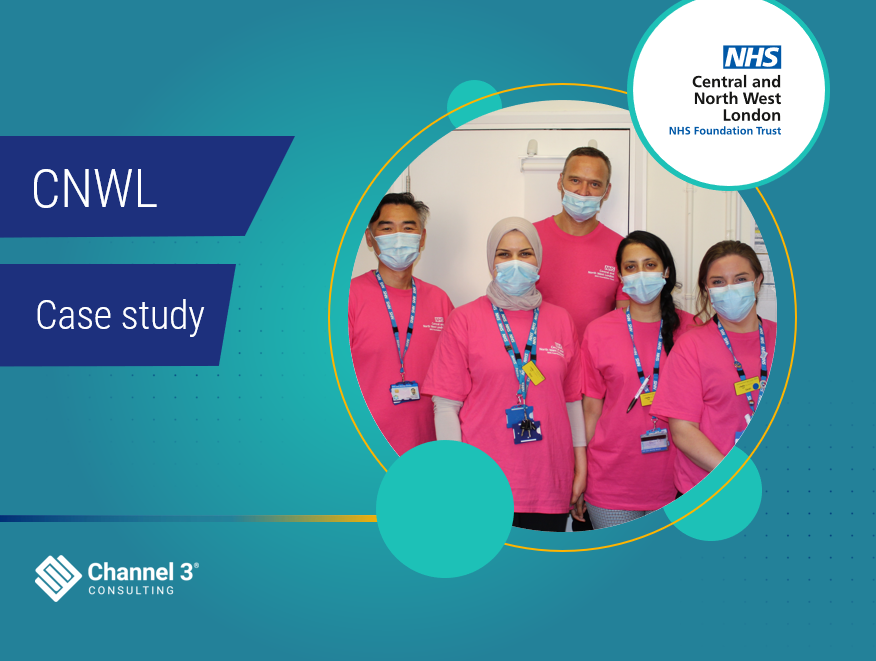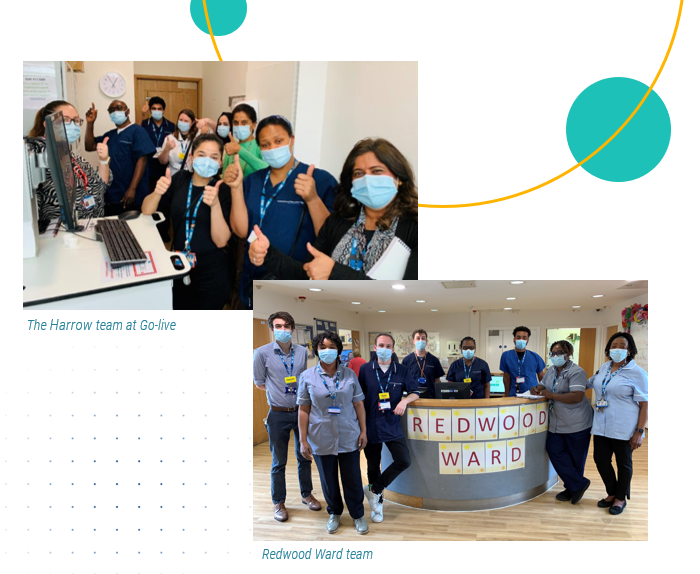As in every healthcare trust, the nurses of CNWL want to devote as much time to caring for their patients as possible. That’s why we were brought in to help reduce the hours they spend juggling admin tasks that aren’t making the most of their skills.
One of the most critical of these tasks is distributing medicine. It’s an essential job, but also repetitive and open to human error. That makes it ideal for a digital solution that buys time back for staff, provides a better, safer service to patients and delivers trust-wide benefits.


Overcoming the barriers to better patient care
Moving from inefficient paper-based processes to digitised ones may seem like an obvious strategy. But we know the pressures on healthcare professionals. Pinpointing the right solution is only the start, embedding it in a way that truly improves their day-to-day working lives is where the hard work really begins.
At CNWL our approach is all about working with people on the frontline to deliver change that sticks. We talked to nurses and doctors to understand what support would make a genuine difference to their ability to care for patients. We used this knowledge to shape everything we did next and bring senior staff from all departments on the journey with us.
We quickly identified the wasted time and energy manual prescription processes were causing, from nurses dispensing doses on busy wards and ordering new stock, to patients waiting as prescription changes were sent back up the chain to pharmacists. Across a large Trust with multiple hospitals and clinics the number of lost hours, and money, rapidly magnifies.
It was clear an EPMA system would transform the process, as would any clinical system. But the real key to long-term success was the wide support we built for the new digital direction from staff at all levels. Not only did this enable a smooth implementation it meant everybody bought into and embraced the technology once it was in place.

Better digital delivering better care
Working side-by-side with clinical staff we were able to implement an EPMA system that benefits practitioners and patients.
The EPMA system is now operating across 32 wards throughout the trust. Using an innovative automated barcode scanning system, that will also soon link patient wristbands to medicine dispensary, it is streamlining the process and reducing the number of people required to deliver this vital service.
This has clear benefits for dosage accuracy and reduced nurse workloads. But its impact ripples far beyond the wards, in a number of ways:
• Digitising CNWL’s entire prescription and medication administration means prescriptions are ordered automatically based on stock levels.
• Pharmacists are now leading the distribution process and, in turn, can trust the information they are getting back.
• Patient medication records can be accessed by other care providers, helping to prevent potentially harmful drug interactions.
• Patient privacy is improved with data stored digitally rather than at the end of their bed.
• CNWL can monitor its drug spend, compare it to other integrated care systems and view reports to see where savings and improvement can be made.
• Clinical processes can be reviewed and areas that require improvement can be worked on.
CNWL’s EPMA system is now leading the way in the sector, demonstrating the power of digital to generate multiple benefits. Most importantly patients are receiving the right medicine at the right time, and nurses can focus on giving them the human care they need.
Salima Walji, Project and Change Manager“I’ve been doing this for 16 years and the one thing that any project needs is buy in from the top and all the way down. Channel 3 has the EPMA experience to make people listen. Knowing they have a track record of realising benefits and implementing best practise, and critical knowledge around information governance, really helped win senior support.”

